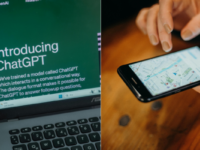Before the outbreak of COVID I worked in an ASX-listed financial services firm. On paper, I had my dream job. I led the company’s Climate Action Plan, climate risk reporting and approach to sustainable growth.
Once COVID struck, a company restructure followed several months later. With that came a diminished focus, and understanding of my areas of responsibility and, after several long afternoon walks, I realised I had effectively been made redundant.
Wanting more control over my destiny I decided to establish a business.
Start-up accelerators and VCs
Once I exited the corporate business, I joined a start-up accelerator. These accelerators can provide an excellent introduction to the start-up ecosystem. However, they focus on a cookie-cutter approach to establishing a business; it nearly always involves a partnership with a CTO.
Unfortunately, there aren’t as many CTOs in the market as there are good ideas. The inherent bias in the market has resulted in tech bros, mostly men, behaving badly. While these young men have a unique skillset, what many of them lack is an understanding of collaboration and cooperation.
There is another way…
My experience to date had been very corporate with a mindset of polish and perfection before launching anything publicly. Once I was able to embrace a mindset of Minimum Viable Product (MVP) I was able to think through things differently.
I was able to build a bank of content. I was able to draw on my experience of datasets and being a logistics systems superuser to think about content as data rather than prose. With a bit of googling, I found an excellent resource on Makerpad, including an article on 50 start-ups you can launch in a day using no-code tools. With a little creative and parallel thinking, I was on my way to building the first version of our platform.
The evolution of AI on top of no-code tools has also been a godsend. By using a combination of data sets, webhooks and AI, I have been able to build product features faster than it can take me to explain to software engineers what I want to build. It is also possible to add features based on customer feedback within hours.
Help comes in many forms
I certainly can’t do everything myself. I have found however that now I have built a tech stack single-handedly I can harness healthy conversations with other technically proficient people, who don’t feel the need to put me down. When I’m stuck, I can reach out to the support desks of the products I am using, as well as a handful of technical founders in other businesses whom I have come to admire, respect and trust.
In some ways, I am very lucky. As a student, I excelled at maths and sciences. I understand data sets and I have worked in systems during my early career in supply chain. I can speak languages and I have taught myself some basic code in the past.
We must continue to encourage young people, especially girls to pursue STEM in conjunction with creative subjects. It’s not an either/or scenario. The best people I have worked with, and the reason for my success in building KitchenHand.io to date, has come from an ability to execute logic-based tasks combined with creative application.
KitchenHand.io is still in its infancy. Some day we will probably need to rebuild with a more technical solution. However, unlike the advice I was given in my early stages, the most important resource to have in a start-up is not a technical cofounder. It’s resilience and resourcefulness. Even now, with an MVP in market, I would not hire a technical co-founder as our real challenges lie in reach, uptake, and our commercialisation models.












